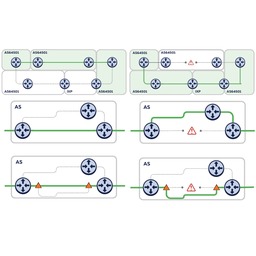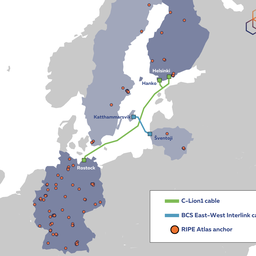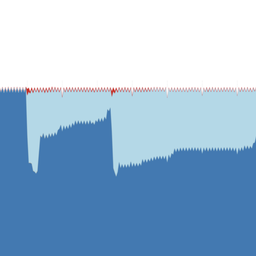This article is about the lottery of an iPad for people hosting RIPE Atlas probes. As an extra motivator for people to keep their probes up as much as possible, the lottery drawing is weighted based on probe-uptime.
As promised by Daniel Karrenberg at the RIPE 61 meeting. we did a lottery among people hosting RIPE Atlas probes. The first (and only) prize is an Apple iPad. As the drawing is weighted based on the probe-uptime, this also allows us to take a closer look at the probe uptimes in real life.
The drawing was done as described below and was won by ... (drum-roll):
Thorsten Dietrich!
Thorsten's winning probe is in the area of Bonn, Germany, and was up for 28 days and 20:42:11 minutes, out of a total of 29 days we considered for the drawing. Congratulations, Thorsten!
The rest of this article describe how we did the lottery.
To determine how to weigh in the lottery, we took the total uptime per probe between 1 December 2010 and 1 Jan 2011 for all the probes. This uptime data measures the amount of time the probe is connected to the RIPE Atlas infrastructure, which is also what is displayed in the web-interface that RIPE Atlas probe hosts have access to. In December 2010 285 probes were online for a measurable amount of time. Since we had some difficulties with probes connecting to the infrastructure mid-December, we decided to not count uptime data between 15 December 7pm and 17 December 7pm (UTC). That means the maximum total uptime possible was 29 days.
The average total uptime for these probes was close to 22 days, which is pretty good, given that many of the probes were not up yet on 1 December 2010. The median total uptime was 26 days, 14 hours and a bit. About 150 probes were up on 1 December, and of these 3 probes reached a maximum uptime of 29 days. A further 112 had an uptime of 28 days or more.
Since there a number of users that host multiple probes, we decided that we would only weigh the user's chance based on the probe with the highest uptime. We think this is fairer then just weighing based on the uptime of all probes combined for a given user. Note that this still gives the people hosting multiple probes an advantage since they had multiple chances to get a high probe uptime. This provided us with 243 probes from 243 different users in the lottery. Their total cumulative uptime is 473352034 seconds (this already deducts all but the maximum-uptime-probe from users with multiple probes).
Cool number, you might think, but apart from the fact that this many years ago the Pacific plate dove under North America, so what? The lottery draw was actually done by picking a random number between 0 and 473352034. We put a table up of uptimes for the highest uptime probes at
http://atlas.ripe.net/data/ipad-lottery/2010-12.max-per-user-uptime.txt
(in case you wonder about the ordering of this data: it is ordered by RIPE Atlas user ID, but the user IDs are not shown).
We did the drawing by executing this command:
perl -le'srand(6475);print int(rand(473352034.5))'
Then we looked up the probe in the uptimes table that has the slot between draw_start and draw_end . These are the start and end points of the cumulative uptimes up to the given probe in the table above.
We then initialized the randomizer with 6475, the number of IPv6 entries in RIR stats files on 1 January 2011.
RIPE NCC staff was excluded from this lottery, so if a probe held by a staff member would have been drawn in the raffle, we would have drawn again, increasing the random seed by 1 (one).
This drawing is final. We won't do a redraw, in case errors were found in our method. In that case please consider these errors 'further randomizations' :)





Comments 1
The comments section is closed for articles published more than a year ago. If you'd like to inform us of any issues, please contact us.
Anonymous •
Dear All,<br /><br />Well, life is not simple, even with presents! It turns out that our winner unfortunately (for him) cannot accept this prize due to strict governmental regulations.<br /><br />So we did a re-draw, based on the algorithm published in the article (random seed increased by one). This resulted in in a new lucky winner: Gert Doering.<br /><br />Congratulations!<br /><br />Robert<br />